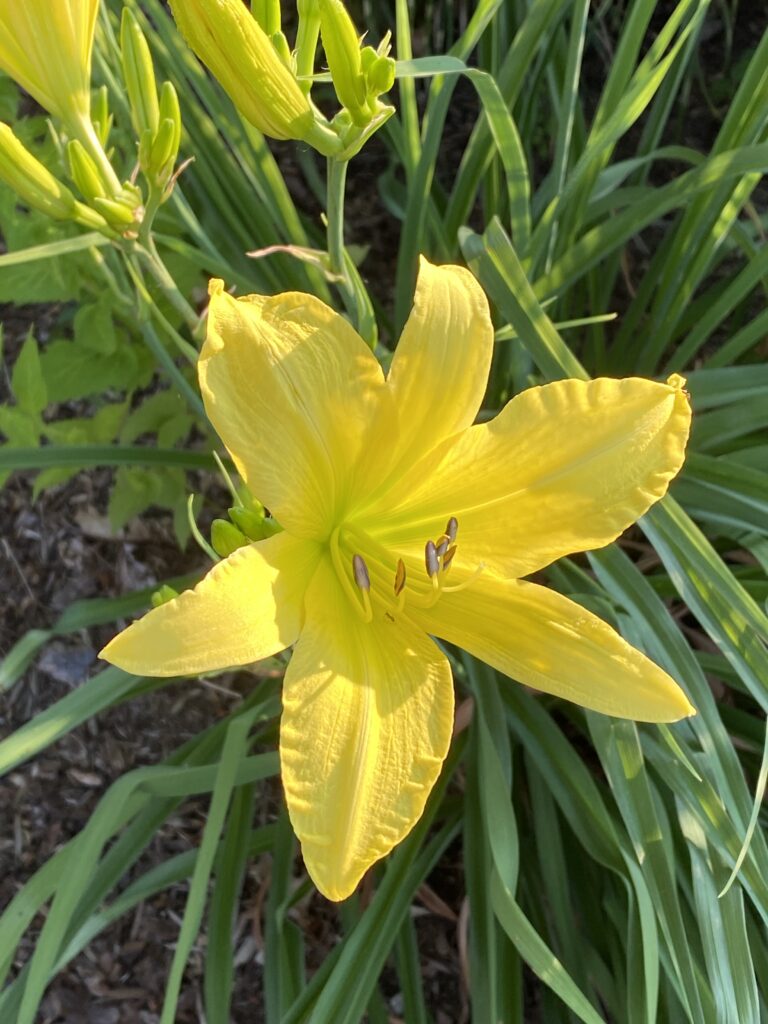
I like to read old gardening books and magazines.
But the danger in reading old gardening books and magazines is that you are introduced to old varieties of flowers and vegetables and then you want to grow them in your garden.
At least I do.
Then the challenge begins. Can you still find them for sale?
Two years ago, I was searching for older varieties of lettuce after reading a book from 1957. I had to settle for a “reasonable substitute” for one variety, ‘Penlake’ or ‘Penn Lake,’ that I could not find anywhere.
This year, I’m growing some old tomato varieties, an old okra variety, and several old pepper varieties listed in The Little Kitchen Garden by Dorothy Giles (1926). Thankfully, I found the seeds for all of them from a couple of different companies that make it their mission to grow, save, and sell seeds for heirloom vegetables and flowers.
But more and more I have discovered that growers don’t always see the need to keep older varieties for sale as they add new, and presumably better, varieties each year.
For example, good luck finding Rosa ‘Corylus,’ a rose so special that they devoted two pages in the June/July 2001 issue of The Gardener to it. I read the article, which is just 23 years old, and decided that this rose might find a place in my garden. But my online searches to find it for sale were futile.
If I put out the word that I’m looking for Rosa ‘Corylus’, someone will surely tell me that there are much better roses to grow, but dog-gone-it, I read about ‘Corylus’ so that’s the rose I want to grow.
Fortunately, not every old variety has fallen out of favor or been replaced with newer, better, stronger, varieties.
The daylily, ‘Hyperion,’ from 1925 (pictured above) is still available, even though there have been tens of thousands of new daylilies introduced in the nearly 100 years since ‘Hyperion’ appeared. Old House Gardens, where they specialize in older varieties of mostly bulbs, still offers it for sale. But there are probably tens of thousands of other daylilies in the last one hundred years that you can no longer find for sale. So be careful reading about “new” daylily varieties in those Horticulture magazines from 1959.
I recently read about a tulip variety, Magier,’ from 1951 that Anna Pavord raved about in her article, “Tulips for the Border” in the April/May 2001 issue of The Gardener. Pavord wrote, “Take ‘Magier’, one of the 10 tulips that all gardeners should grow before they die…”
After reading that, I decided, of course, that I must grow it too. But so far, my search results have come up empty.
Really, how can a tulip variety like that no longer be for sale less than 25 years after Pavord wrote that article and a mere 75 years since it was introduced?
And on it goes.
Truthfully, I could be just as happy growing new varieties of roses, daylilies, tulips and vegetables, but I want the old ones. I love growing varieties that I know other gardeners before me also grew and enjoyed.
So I’ll keep reading, and I’ll keep searching, and later this summer, I’ll let you know how those older varieties of tomatoes, peppers, and okra tasted.
And today, I’ll smell my ‘Hyperion’ daylilies, which have a light scent, a scent that is often and usually lacking in today’s daylily varieties. Maybe that scent is why it has been around for nearly 100 years? But that’s a story for another day.
Then I’ll continue my quest to find Rosa ‘Corylus’ and Tulipa ‘Magier’ for sale.


I love old varieties. I used to have a white Corydallis, whch I loved. But when I moved a few years ago, I failed to bring it with me. I had purchased it at Habigs, but have not seen it there, since.
You’ve reminded me of one of the best gifts we ever gave to my dear MIL. Her “Joy of Cooking” cookbook had fallen apart from nearly 50 years of use and she called us for a recipe because some of the cookbook’s pages had fallen out and been lost. Just before I clicked to buy her a new “Joy of Cooking” on Ebay, I had the thought to buy her a copy of her own edition but in better condition… and I found it!! She was beyond delighted to have her ‘new’ copy of the cookbook she knew backwards and forwards. I still smile when I remember her delight.
We’re wondering if climate change will mean that our gardening books for 7b, will be totally wrong?